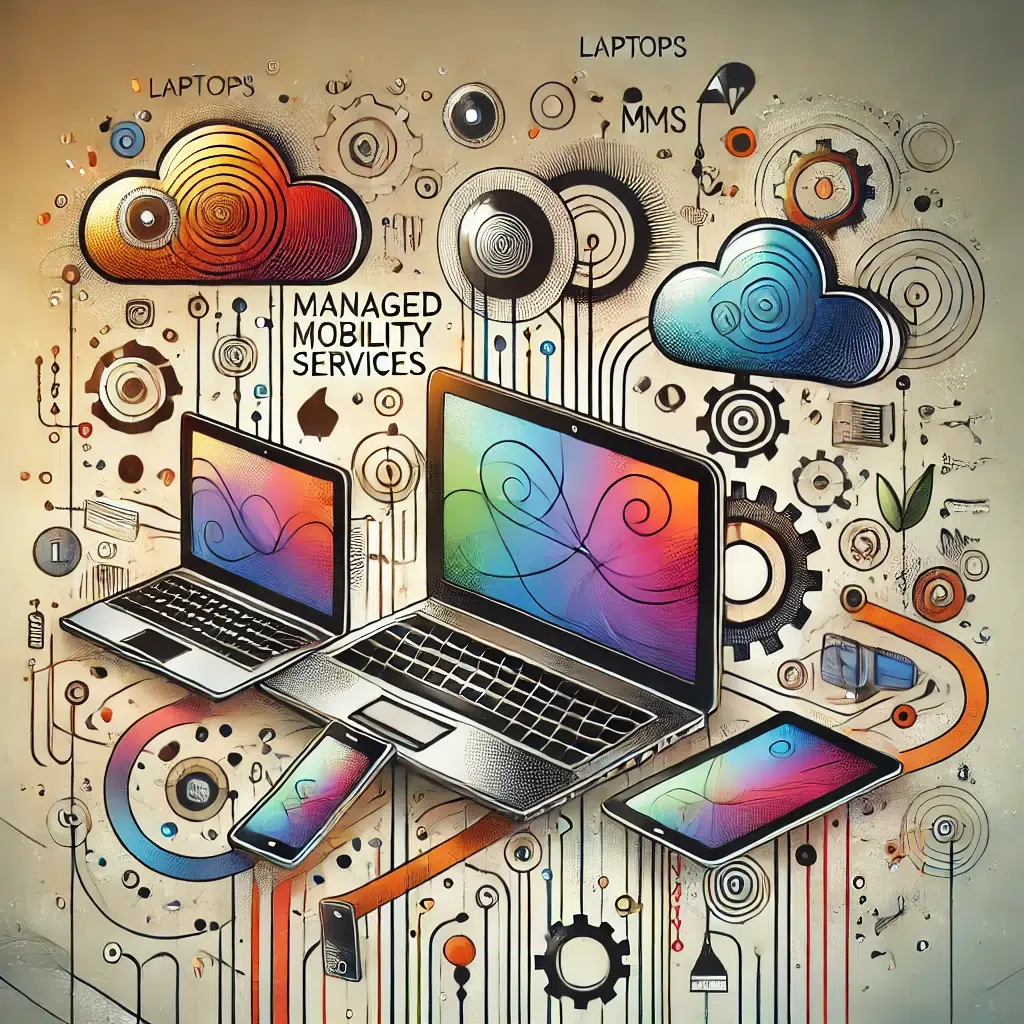
Listen to a Deep Dive discussion of this story
Is a laptop more like a desktop PC or more like a smartphone?
Before the COVID pandemic, this might have seemed like a reasonable question.
And back then, most organisations decided laptops were like desktop PCs. After all, they are personal computers and they do run the same operating systems as desktops, so it seemed sensible to manage them just like all those other computers in the office.
“Let the IT department handle them”. Just like with desktops, they can procure and keep track of them, stick bar codes on them, remind people to install the company’s chosen anti-virus software, and to download their OS updates.
But post-pandemic, this model is no longer fit for purpose. So what changed?
Work-from-Anywhere means laptops are more often out of the office than in the office. Employees issued with multiple devices (a phone and a laptop, for example) reasonably expect that all their issued devices will be managed in the same way, especially for support, repairs, loss/theft, and security.
Laptops get moved around. And this means that mobile device logistics are unavoidable. Whether it is onboarding a new employee, staging and kitting new devices, shipping equipment to and from private locations, managing repairs and replacements, offboarding a device, recycling old devices, or managing and warehousing a pool stock of devices, complex forward and reverse logistics are involved.
Luckily, this is exactly what already happens with smartphones and tablets and other connected devices. Managed Mobility Services (MMS) are the integrated systems and logistics to procure, stage, kit, deliver, manage and control mobile IT devices. Today, over 80% of Fortune 500 companies use specialised providers of MMS to manage all aspects of their mobile IT, to improve efficiency and contain cost.
In today’s rapidly evolving digital landscape, enterprises are increasingly turning to MMS to streamline the management of their connected devices. These services typically encompass smartphones, tablets, and IoT devices, ensuring they are secured, maintained, and efficiently utilised. However, there is a critical piece of the puzzle that many businesses overlook: laptops.

While it’s common to associate MMS with mobile devices that fit in your pocket, the reality is that laptops play an equally crucial role in the mobility ecosystem. Treating laptops as just another asset in the IT department rather than a vital component of your mobile infrastructure can lead to missed opportunities for optimisation, security, and cost savings. Here’s why incorporating laptops into your MMS strategy is not just beneficial but essential.
Unified Management for Consistency and Efficiency
One of the primary advantages of including laptops in your MMS is the ability to unify management across all mobile ICT devices. When laptops are managed separately from other mobile devices, it often results in fragmented processes, inconsistencies in security protocols, and inefficiencies in device maintenance. And as tools such as Unified Endpoint Management (UEM) systems slowly replace older Mobile Device Management (MDM) systems, treating laptops as part of the MMS services has become even easier.
By integrating laptops into your MMS, you ensure that all mobile devices—whether they are smartphones, tablets, or laptops—are subject to the same management practices. This consistency simplifies the oversight process for IT departments, reduces the complexity of maintaining multiple device types, and ensures that policies such as updates, security patches, and compliance checks are uniformly applied across the board.
Enhanced Security and Compliance
Security remains a top concern for enterprises, especially as the lines between work and personal life continue to blur. Laptops, which often carry sensitive corporate data, are particularly vulnerable to security breaches if not managed properly. When laptops are included in an MMS, they benefit from the same robust security measures that protect smartphones and tablets. This includes many mobile security aspects which simply do not apply to desktops.
This unified approach to security ensures that all mobile devices are protected under the same security umbrella, reducing the risk of data breaches. Additionally, MMS providers can implement consistent compliance protocols across all devices, making it easier for enterprises to adhere to industry regulations and avoid costly penalties.
Cost Efficiency and Predictability
Managing laptops separately from other mobile devices can lead to redundant processes, duplicate costs, and unpredictable expenses. MMS offers a way to centralise the management of all mobile ICT devices under one service provider, leading to significant cost efficiencies. Because laptops are assigned to individuals rather than offices, MMS can interface with asset and HR systems to ensure that all devices are tracked, assigned and recovered as required.
By treating laptops as part of your MMS, you can take advantage of bulk procurement, standardised maintenance, and streamlined support, all of which contribute to lowering the total cost of ownership. With an MMS provider handling your laptops, budgeting becomes more predictable, as services are often delivered on a subscription basis, eliminating unexpected IT expenditures. Device-as-a-Service (DaaS), which bundles device costs with management services into a monthly subscription model, is already common with mobile devices and with MMS can be easily applied to laptops too.
Improved User Experience
In the modern workplace, employees expect seamless mobility, whether they are working from their smartphone, tablet, or laptop. When laptops are excluded from MMS, the user experience can suffer due to inconsistent device management and support.
Including laptops in your MMS ensures that employees have a consistent, reliable experience across all their devices. Whether they need assistance with a laptop or a smartphone, they can access support through the same channel, reducing frustration and downtime. This improved user experience can lead to higher productivity and job satisfaction, which ultimately benefits the entire organisation.
Laptops are an integral part of the mobile ecosystem, and their management should not be siloed from other mobile devices. By including laptops in your MMS, your enterprise can achieve greater efficiency, enhanced security, better ESG outcomes, and a more cohesive mobility strategy.
Telestar manages over half a million mobile devices and connections (yes, including laptops!) for enterprises and governments throughout Australia and New Zealand. Send us a note to see how we can enhance security, efficiency and cost control for your laptop fleet.